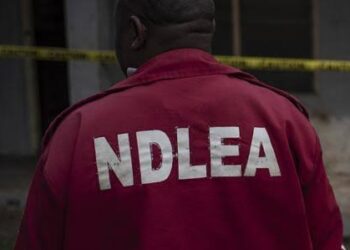The U.S. Representative to the United Nations, Ambassador Thomas-Greenfield, has made case for defending, upholding and revitalising international anti-corruption framework.
Delivering the U.S. statement at the first-ever UN General Assembly Special Session Against Corruption in New York Thomas-Greenfield noted that President Joe Biden had called corruption “an insidious pandemic,” just as Secretary of State Antony Blinken has said, it “threatens security and stability.”
According to the U. S. Ambassador, “That’s because corruption isn’t just a threat to the pocketbooks of ordinary citizens. It prevents economic growth, extinguishes trust in public institutions, and threatens democracy itself.
“Corruption takes away from public and private resources, and at its worst, funds transnational crimes and human rights abusers.”
He stated that, “The Biden administration is committed to taking special aim at corruption. That starts with building on the U.S. government’s existing anti-corruption tools, obligations, and commitments.
“That includes steps like vigorously enforcing the Foreign Corrupt Practices Act, which strengthens business environments around the world by prohibiting U.S. persons from bribing foreign officials.
“It also means strengthening the U.S. Department of Justice’s Kleptocracy Asset Recovery Initiative. Since 2019 alone, U.S. asset recovery efforts have led to the transfer of more than $1.5 billion to countries harmed by corruption.”
Speaking further he said, “Today, the world is shining a spotlight on our shared efforts to prevent and combat corruption. The United States strongly believes that we must defend, uphold, and revitalise the international anti-corruption framework.
“This Political Declaration is an important first step in the revitalization process. The fight against corruption begins with every country fulfilling its existing obligations, especially those enshrined in the UN Convention Against Corruption, or “UNCAC”, a treaty that enjoys near-universal ratification. Now, the challenge for all of us is to turn these commitments into real, demonstrable actions.
“Our Political Declaration is rooted in this existing anti-corruption framework and reflects its well-established priorities. It pushes us all to acknowledge our strengths, and weaknesses, to better fulfil our obligations and commitments under the convention.
“For example, the declaration includes, for the first time, a time-bound commitment to fulfil our obligations to combat bribery, including foreign bribery, which will strengthen compliance with the UNCAC.
“The declaration is balanced, forward-leaning, and aspirational. It recognizes that preventing and combating corruption is a shared responsibility. And that prevention is just as important as investigation and prosecution.
“It acknowledges that the fight against corruption requires a partnership between all stakeholders, like governments, civil society, journalists, and the private sector.
“In particular, governments must see civil society as partners, not adversaries, and I look forward to the participation of civil society in the UNGASS and its side events.”
Ambassador Thomas-Greenfield further stated, “The UNGASS against corruption is an opportunity to take stock of our progress while acknowledging the challenges still ahead.
“And for our part, the United States is committed to continued leadership in the global fight against corruption and turning our talk into action. That is why President Biden will be hosting the Summit for Democracy, which will include a focus on combating corruption and protecting democratic values.
“In that spirit, the United States is also formally announcing its candidacy to host the 2023 UNCAC Conference of States Parties. This will be an opportunity to reaffirm our resolve to work together to tackle some of the toughest corruption-related challenges facing us today.
“We look forward to working with you, with all of you, in the coming year as we advance the commitments set forth in the UNGASS Political Declaration.”




